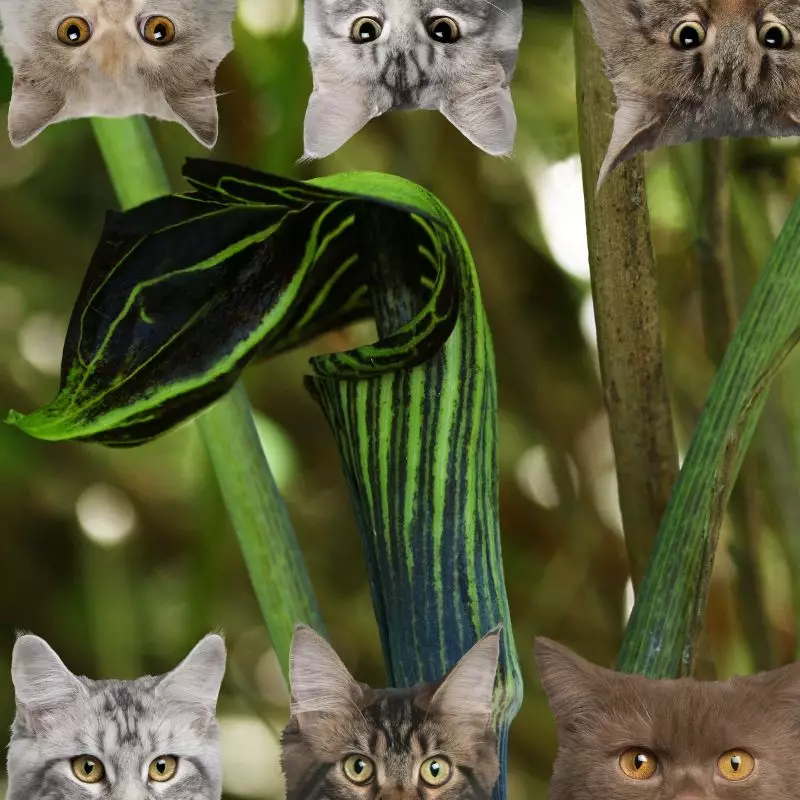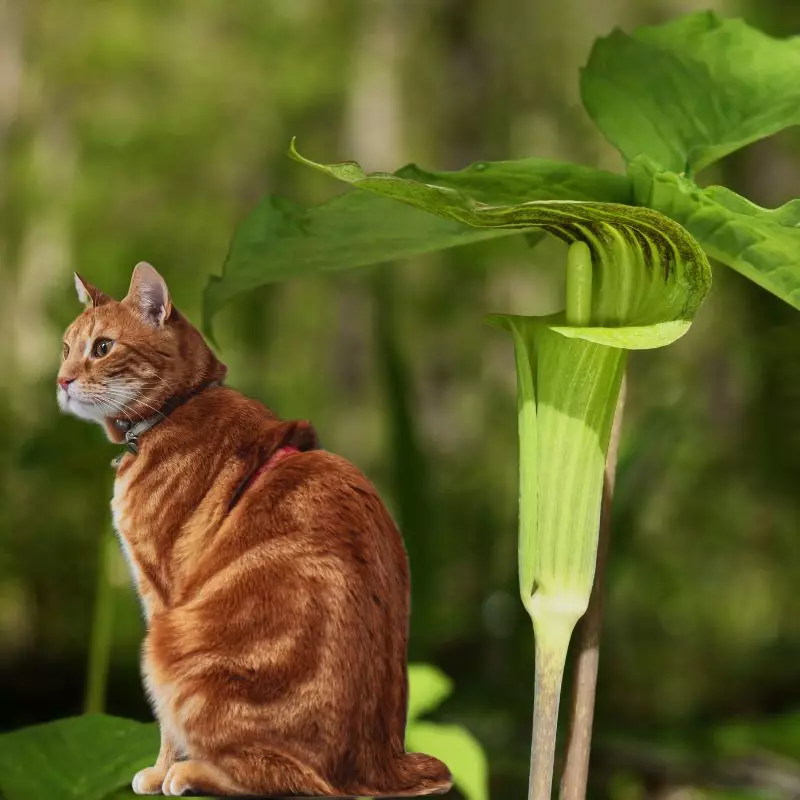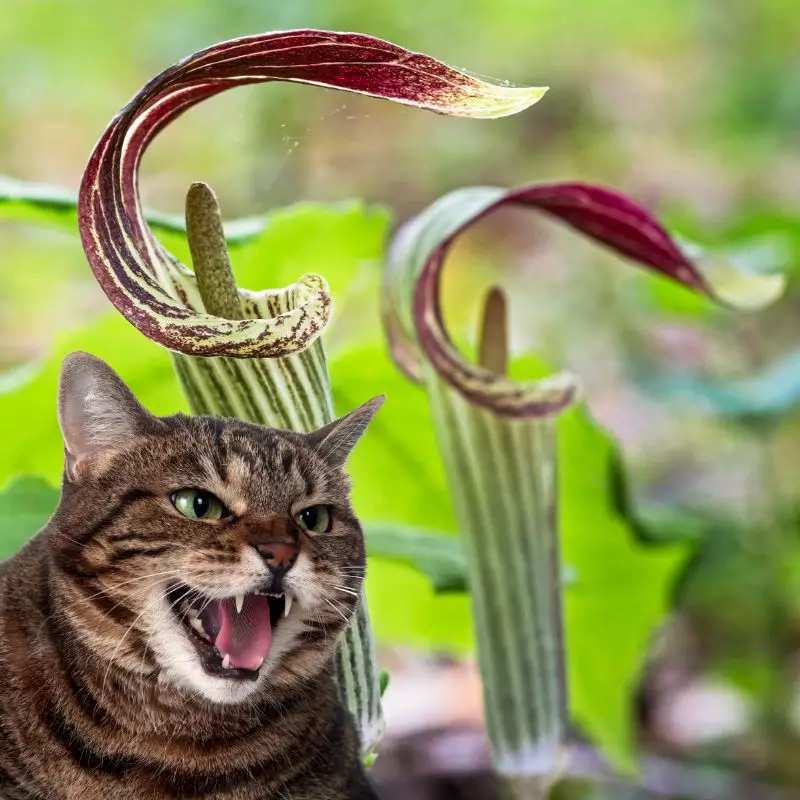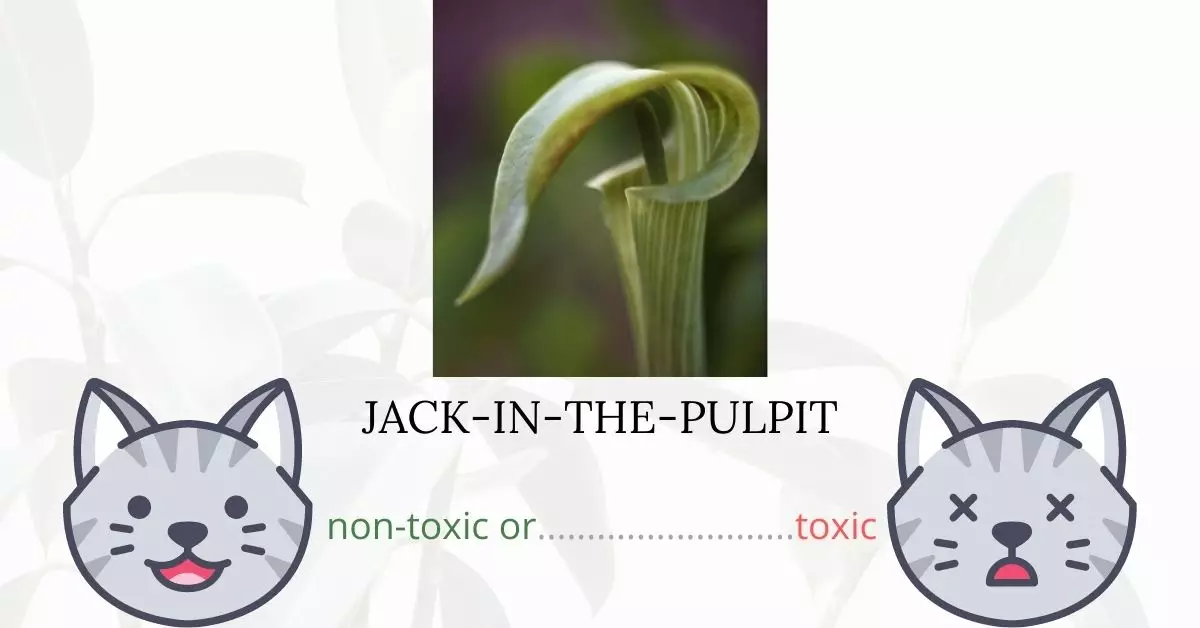Yes, Jack-in-the-pulpit (also known by various names including Three-leaved Indian turnip, Devil’s dear, Wake robin, and others) is toxic to cats. This perennial herb is a member of the Araceae plant family and contains insoluble calcium oxalates. While some species may have leaves with little or no poison, it’s essential to consider all parts of these plants as dangerous. When ingested by animals, calcium oxalate crystals can penetrate mouth, tongue, throat, and stomach tissues, causing significant discomfort and pain, akin to having countless microscopic needles embedded in the mouth and throat. These crystals can further harm the cat’s internal tissues as they make their way to the stomach and intestine.
This article is a result of collaborative efforts with a team of experienced DVMs (doctors of veterinary medicine). Their valuable insights ensure we offer accurate and up-to-date information on the potential risks posed by various plants, specifically Jack-in-the-Pulpit in this context. Our research also encompasses high-authority sources such as ASPCA and PetMD, ensuring a comprehensive overview of every plant’s impact on feline health.
Clinical Signs of Jack-in-the-Pulpit Poisoning in Cats

When a cat comes into contact with, inhales, or ingests the Jack-in-the-Pulpit plant, various poisoning symptoms may arise due to the plant’s toxic components. Here’s a detailed look at the symptoms and their underlying causes:
- Cardiac arrhythmia: The ingestion of toxic elements can disrupt the cat’s heart rhythms, leading to irregularities.
- Diarrhea: The irritants in the plant can upset the gastrointestinal system, leading to diarrhea as the body tries to expel the harmful substances.
- Dilated eyes: The toxins can affect the cat’s nervous system, causing pupils to dilate as a response.
- Difficulty swallowing: The calcium oxalate crystals in the plant can embed themselves in the throat, causing pain and making swallowing difficult.
- Excessive drooling: This is a direct response to the irritation caused by the plant’s toxins in the mouth and throat.
- Hoarse barking (or rather, meowing): The throat irritation can also lead to changes in the cat’s vocal sounds.
- Labored breathing: If the airway becomes swollen or obstructed due to the embedded crystals, it can lead to difficulty in breathing.
- Loss of appetite: The general discomfort and irritation in the mouth and throat can deter the cat from eating.
- Numbness of the exposed area: Contact with the plant’s sap can cause topical numbness or tingling.
- Obstruction of the airway: Swelling from irritation or embedded crystals can lead to partial or complete blockage of the air passage.
- Pawing at the mouth: This is an instinctive reaction when the cat feels discomfort or foreign particles in its mouth.
- Swelling of the tongue and lips: The embedded calcium oxalate crystals can cause localized swelling in areas of direct contact.
- Vomiting: As with diarrhea, vomiting is the body’s way of trying to rid itself of ingested toxins.
If you suspect your cat has come into contact with or ingested any part of the Jack-in-the-Pulpit plant, it’s essential to seek veterinary assistance immediately.
First Aid and Treatment of Jack-in-the-Pulpit Poisoning in Cats

Immediate treatment will begin with flushing the cat’s mouth and affected areas with clean, cool water to eradicate the poisons. To aid your cat with swelling and pain, your veterinarian may prescribe an antihistamine or pain reliever.
Intravenous fluid therapy may be also administered to prevent dehydration. If an antihistamine has not been given previously, it may be given as an intramuscular injection. Gastroprotective medicines may be prescribed to avoid stomach lining injury. If your cat’s airway is considerably enlarged, he or she may need to be kept in the clinic for observation until the swelling goes down.
Recovery from Jack-in-the-Pulpit Poisoning in Cats

Most cats recover rapidly after being poisoned by Jack-in-the-Pulpit. Within twelve to twenty-four hours of intake, the unpleasant effects of the crystals in the mouth and gastrointestinal tract normally fade away. The liver and kidneys may need to be monitored more closely if significant amounts of the plant are consumed.
Prevention of Jack-in-the-Pulpit Poisoning in Cats
Observe your surroundings and be familiar with toxic plants that can harm your cat. If toxic plants are growing around your neighborhood, it is best to keep your cat safe indoors. Utilize cat cages and playpens especially if you are going out and leaving your cats at home.
If you love plants but have cats at home, check out these lists:





